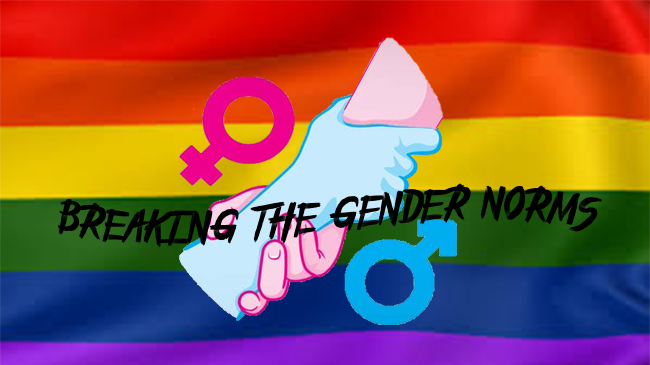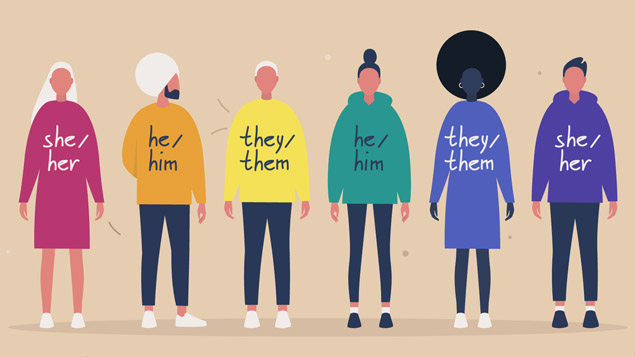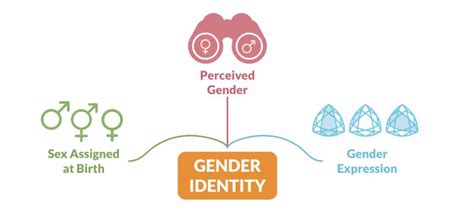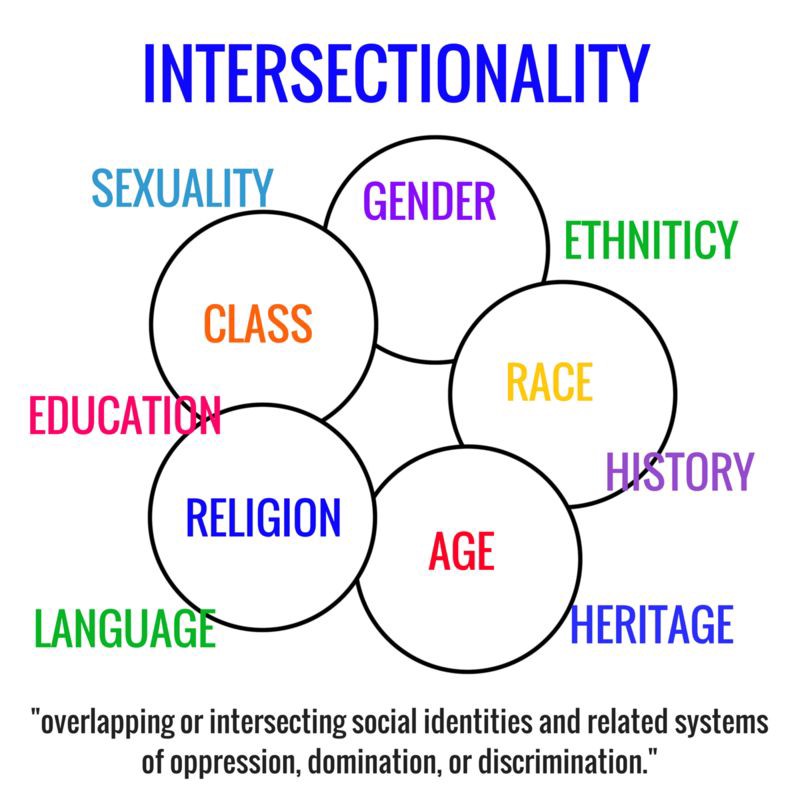
Gender in the Workplace
A Nonbinary Individual’s Foray into Corporate A.V.
Part 3: Religious Intersectionality
Since writing my last blog post, a lot has changed. Namely, I no longer work at the A.V. company that I mentioned before. To be frank, the misgendering and discriminatory practices became too much to handle, and I needed a way out.
Before I left, there were unfortunately a few more instances of transphobia, and worryingly, antisemitism that I faced.
Our A.V. team would always work with other teams to make the corporate world function. A.V. would set up and coordinate projectors, laptops, internet (whether WiFi or Ethernet,), sound boards, microphones, lights, you name it. We were on the tech side of the event sphere. The banquet team would prepare and serve food, the sales team would budget and interact with the clients, and the arrangements team would set up chairs, tables, and stages for each event. My main problems always seemed to arise from arrangements.
The arrangements team was all-male. I find this worthy of note for a variety of reasons, but primarily that it had created a work environment that lacked any diverse perspective, and as such, created a “locker room” environment (borrowing words from Justice Kavanaugh here.) This meant, in their case, that there was no wariness of verbiage among them, and they felt free to say whatever was on their minds without fear of repercussion. In one particular instance, I found myself in the Great American Hall with the arrangements team and one of my A.V. coworkers. We were folding drapes, and as the arrangements staffer rolled in a table, he was loudly complaining about millennial women. Of course, I turned an ear in. The Great American Hall is a very large space, which is worthy of note because even as he walked past me, he was talking to his coworkers across the space. Once again, I felt very ignored. This would have been fine had he been discussing work, or shared stories with his coworkers, or even movies or music. However, when he’s loudly talking about women’s rights (yes, specifically that we belong in the kitchen making him dinner! So original,) I find myself unable to keep quiet.
In response to his complaint, I uttered a quick “Oh, I just love working in a hostile sexist workplace, don’t you?” to my male A.V. coworker. He looked at me with wide and concerned eyes. A hush fell over the entire hall, and I felt my perceived female invisibility vanish in an instant. Eyes were on me as I continued working like nothing had happened. Later that hour, as I had moved on to another task, I heard one of the arrangements team start to make a joke about how Starbucks is only for women. He then paused, looked directly at me, and then said “Well. Let’s just say, my wife likes it more than us guys, huh?” I rolled my eyes and continued my task, thinking to myself that the group of them probably won’t even remember this conversation. But I will. I have to. If we could so easily forget discrimination, perhaps life would be easier, but as it is, I will never forget how it feels to be mocked and talked down to.
Another member of the arrangements staff found it funny to torment me at length. Somehow, he found out my dead name and thought it was really funny to constantly refer to me as that at work. I tried to tell him this upset me, and that I didn’t find it funny. When I expressed that, another arrangements employee approached me, saying that his coworker was only making fun of me because I reacted, and that I should be less hurt! I balked at those words. I distinctly remember looking into his eyes, and saying “But I am hurt.” Clearly, this didn’t matter, as the toment didn’t stop.
Since leaving the A.V. company, I began work at a small theatre, Civic, located in the West End of Allentown. I wish I could say the misgendering instantly ceased, but even with short hair and a gender neutral presentation, I am still often referred to with she/her pronouns. What brings me comfort, though, is that the strangely passive-aggressive comments and debaters trying to engage me have all but completely ended. In theatre, someone might mess up your pronouns, but most seem to believe and understand you when you say you’re not cis. I am no longer responsible for explaining my reasoning for being, and that is such a relaxor.
On one of my last days at the A.V. company, I was not only asked to explain my gender but also my religion. I don’t find myself talking about my Jewish identity much. I wear a Star of David pendant most days and occasionally will wear my Star of David earrings. I will request off for major holidays, but other than that, I tend not to discuss it. Throughout my time working there, I was met with different levels of acceptance from my coworkers, and I learned that sometimes even the most vocal supporters are the ones with something to hide.
The older gentleman I mentioned last month, with the staunch antimask and climate denial beliefs, was quite the offender of that. As Chanukkah approached, he purchased a small LED menorah to keep in the office, and would have me light it each morning (I worked from 6 AM to 4 PM usually.) He seemed to take great pride in that. But on one of the last days of the holiday, the governor of PA, Josh Shapiro, was holding a Zoom meeting in one of our meeting rooms. I wanted to wish him a chag hanukkah sameach, or a Happy Chanukah. I mentioned to my coworker how important to me it was that we had a Jewish political leader, as we’ve never had a president who is anything but Christian. After that chat, he pulled me aside privately, and told me that “my people are plenty well-represented in government.” Oh. I left this conversation shocked– did he just imply to me that he thought Jews ran the world?
I was still working at this workplace during the Oct. 7 events that preceded Netanyahu’s siege of the Gaza Strip. Four separate coworkers tried to debate me about this, as well, like it was something that I had a personal stake in. I tried my best to explain that I’m against murder and war in any way and that by being an American Jew my experience and opinions were likely vastly different than a Jew living in Israel. But I kept being talked over. I left that conversation less shocked. Clearly, they didn’t actually want my opinion, but rather my ear and my time. They wanted my validation of their beliefs, with me simply being a token Jew, and a token female Jew at that– meant to sit quietly and agree. Fantastic.
The most egregious case of antisemitism came from a coworker named John. I feel less afraid to name him specifically, as he was well-known throughout the workplace for being a poor worker and an entitled, arrogant person. No conversation with him would last five minutes without him mentioning that he’d been in the industry thirty-five years (a number he kept inflating, as if we wouldn’t notice,) or that he knew better than his coworkers, despite his constant errors that would delay the team on a near-daily basis. As such, nobody wanted to work with John. Since I was young and quite a pushover, I was often assigned to work alongside him.
John would often try to teach me as if I were a young protegee and he was a grandmaster. The largest flaw in this was that he’d try to teach me the same few things over and over again, seemingly forgetting what he’d taught me before. Much like with my unwillingness to correct people on my pronouns, I found myself unwilling to correct this, either, and just go along with learning what he’d shown me before.
On my very last shift with John, he pulled the card he’d seemingly been waiting to pull: he asked me why I didn’t take work off for the Sabbath.
In today’s gig economy, it’s very hard to become an established professional. I want to be a sound engineer, so I will have to work Friday night performances. It may be a bit of a sore spot for me, yes, but I’m more than happy attending my Rabbi in Selinsgrove’s online services on Saturday mornings. To grow my career in this field, that is a necessary sacrifice. John wasn’t content with this answer.
Somehow, he began on a tangent about how he believed Jews were very controlling. I was very stricken to hear this. That is a common antisemitic talking point, and I didn’t want to stand for that. Of course, I didn’t. I tried to defend myself, but he kept talking over me. It was another weird circumstance where I wasn’t being talked to, but rather talked at– he didn’t care what input I had, only what he had to say. Whether he was holding on to this protegee notion or simply seeing me as “only a woman” (re: lesser and subservient,) I wasn’t sure. But I did leave that conversation seething at the hypocrisy. He’d just told me a good deal about his form of Christianity, and I couldn’t help but think: isn’t this a double standard? You call Jews controlling, but will happily turn a blind eye to Evangelical suffering in small communities, brought on by a controlling leader where no child is allowed to be different or they will be sent to hell? It is just all so convenient. If you shame the target (in this case, Jews,) for something your own religion struggles with, it will shift the focus and conversation away from your own issues, and perpetrate a stereotype that’s been in effect for decades. It’s the same scapegoat blame that has followed the Jewish people for generations.
Before I end this blog post, I want to take a moment to derail my own conversation. I want to say, unequivocally, that I stand with Palestine. It took some processing immediately following the music festival attack, but whatever supposed retribution Netanyahu has taken is so beyond the scope of that one day. Over 30,000 people have been killed by the IDF, and that number is only increasing daily. Gazans have been told to flee to the South, where they were then bombed. They were told to flee to Rafah, which was then bombed. Some of the poorest people in the world are being herded like cattle, where a mass extinction event is unfolding. What is occurring is not a take-down of a terror organization, as many U.S. Citizens would like to paint the issue. Civilians are starving to death in the largest numbers since the Holocaust, and to see my people perpetuate that cycle is so maddening and heartbreaking that I cannot truly put it into words.
I may have faced heightened antisemitism in the wake of the Oct. 7 attack, but it is nothing compared to the militaristic US-sponsored hell that Israel is invoking on Palestinian civilians currently. If you have taken the time to read this far in my humble blog, I ask, from the bottom of my heart, to donate where you can. There isn’t much one person can do, as I’m woefully aware, but as a union of individuals, we can change the world.
I am linking multiple GoFundMe pages from disenfranchised Palestinians. Please, if you have the means, donate what you can.
- https://www.gofundme.com/f/n6dhbq-support-for-palestine
- https://www.gofundme.com/f/help-my-family-evacuate-from-gaza-urgent?qid=1490153893b7d0af4661bccd50227eb8
- https://www.gofundme.com/f/kk8unx-help-my-family?qid=1490153893b7d0af4661bccd50227eb8
- https://www.gofundme.com/f/donate-to-help-us-get-out-of-this-nightmare?qid=1490153893b7d0af4661bccd50227eb8
- https://www.gofundme.com/f/6tr8x6-evacuate-my-family-from-gaza?qid=1490153893b7d0af4661bccd50227eb8
- https://www.gofundme.com/f/escape-gaza-war-help-me-and-family?qid=1490153893b7d0af4661bccd50227eb8
- https://www.gofundme.com/f/azyxs-help-my-parents-to-evacuate-gaza?qid=1490153893b7d0af4661bccd50227eb8
- https://www.gofundme.com/f/help-fatma-and-her-family-to-evacuate-from-gaza?qid=1490153893b7d0af4661bccd50227eb8
- https://www.gofundme.com/f/help-me-evacuate-my-family-out-of-gaza?qid=1490153893b7d0af4661bccd50227eb8
- https://www.gofundme.com/f/help-whats-left-of-karims-family-to-safety?qid=1490153893b7d0af4661bccd50227eb8


